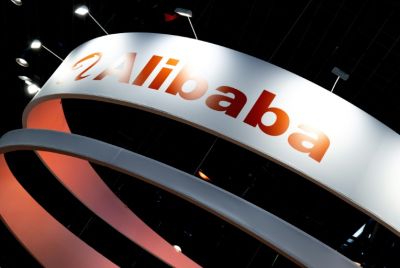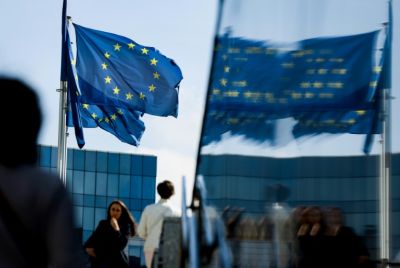Iran Nuclear Talks: Iran, Six Powers Face 'Significant Gaps' In Achieving Deal [Hold]
VIENNA (Reuters) -- Iran will never slow down its nuclear research program, the Islamic Republic's clerical supreme leader said Wednesday as negotiators from Tehran and six world powers struggled to narrow "significant gaps" blocking the way to a long-term deal.
Ayatollah Ali Khamenei said Tehran's negotiating team should not yield to issues "forced upon them."
"These negotiations should continue," he told nuclear scientists in Tehran, the official IRNA news agency reported. "But all should know that negotiations will not stop or slow down any of Iran's activities in nuclear research and development."
Tehran denies suspicions that it is after nuclear weapons.
The negotiators from Iran and the so-called P5-plus-one -- the United States, Russia, China, Britain, France and Germany -- plan after their two days of talks in Vienna to start drafting the agreement to meet a self-imposed July 20 deadline.
They will begin their next round of talks in the Austrian capital on May 13, European Union foreign policy chief Catherine Ashton, coordinating the talks for the powers, told reporters while standing next to Iranian Foreign Minister Mohammad Zarif.
"A lot of intensive work will be required to overcome the differences," she said. "We will now move to the next phase in the negotiations, in which we will aim to bridge the gaps in all the key areas and work on the concrete elements of a possible comprehensive agreement."
Zarif read out the same statement in Farsi.
The stakes are high. Western powers, along with Russia and China, want to avert an escalation of tensions in the Middle East in the form of a new war or a regional nuclear arms race. Israel, believed to be only nuclear-armed nation in the Middle East, has threatened to take military action against Iran if it is not satisfied that the nuclear program is curbed.
"The Iranians clearly have a sense of urgency to get a deal done, as does the P5+1," a senior diplomat close to the talks said.
"We know that there are still some significant gaps that remain and know this process will not be easy. But we're all committed to getting it done by July 20," the diplomat added, in an assessment echoed by other Western envoys.
The toughest areas to be tackled are Iran's future uranium enrichment capacity, nuclear facilities that Western powers believe have little or no civilian value, and future nuclear research, as well as a sequence of steps to remove the international sanctions that have crippled Iran's economy.
Despite Khamenei's pledge to the contrary, U.S. and European officials say they will insist on limits to Iran's efforts to develop more efficient enrichment technology, which would enable Tehran to produce sensitive nuclear material at a faster pace.
Background tensions over Russia's involvement in Ukraine and Western threats of further sanctions against Moscow and over the U.S. denial of a visa for Iran's proposed new U.N. envoy in New York have so far not affected the nuclear talks, diplomats say.
A senior Iranian official said Tehran was seeking to protect its "red lines" in what he said were "difficult" negotiations.
"Iran wants a deal in which its rights have been considered," the official said. "The talks have entered a very difficult stage. Making progress is difficult."
"BREAKOUT" PERIOD
The third negotiating session in Vienna this year will conclude on Wednesday with a meeting of senior foreign ministry officials from the six powers chaired by Ashton and Zarif.
The six powers' goal is to extend as much as possible Iran's so-called "breakout" period - the time it would need to develop a nuclear weapon. U.S. Secretary of State John Kerry said on Tuesday the current Western assessment of Iran's capability in this regard is two months.
Khamenei, who has the last say on Iran's affairs of state, has repeatedly said that the oil-producing OPEC member's "red lines" are that it will never give up enrichment or shut any nuclear facility.
Among the most stubborn issues are Iran's centrifuge research and development program, the size of its uranium stockpiles, the future of the Arak research reactor that could eventually yield significant quantities of bomb-grade plutonium, and the future of the Fordow underground enrichment plant, a secret site until Western intelligence uncovered it in 2009.
Iran denies accusations that it is seeking a nuclear weapons capability and wants an end to sanctions that have drastically reduced its oil income and virtually barred it from the international financial system. Tehran also wants to regain what it regards as its rightful place as a leading regional power.
The current Vienna talks are building on a preliminary deal that Iran and the six powers reached in Geneva last November. That agreement provided Iran with limited sanctions relief in exchange for a six-month suspension of some nuclear activities, including higher-grade enrichment, that began on Jan. 20.
Yukiya Amano, director-general of the U.N. nuclear watchdog in Vienna, told Reuters in Oslo that Iran is cooperating with his inspectors seeking answers about detonators that could be used to help set off an atomic explosive device, part of a wider investigation into Iranian activities.
Western negotiators say that clarifying Iran's past nuclear activities is essential if they are to be able to accurately predict what Iran's future "breakout" capability will be.
© Copyright IBTimes 2024. All rights reserved.





















